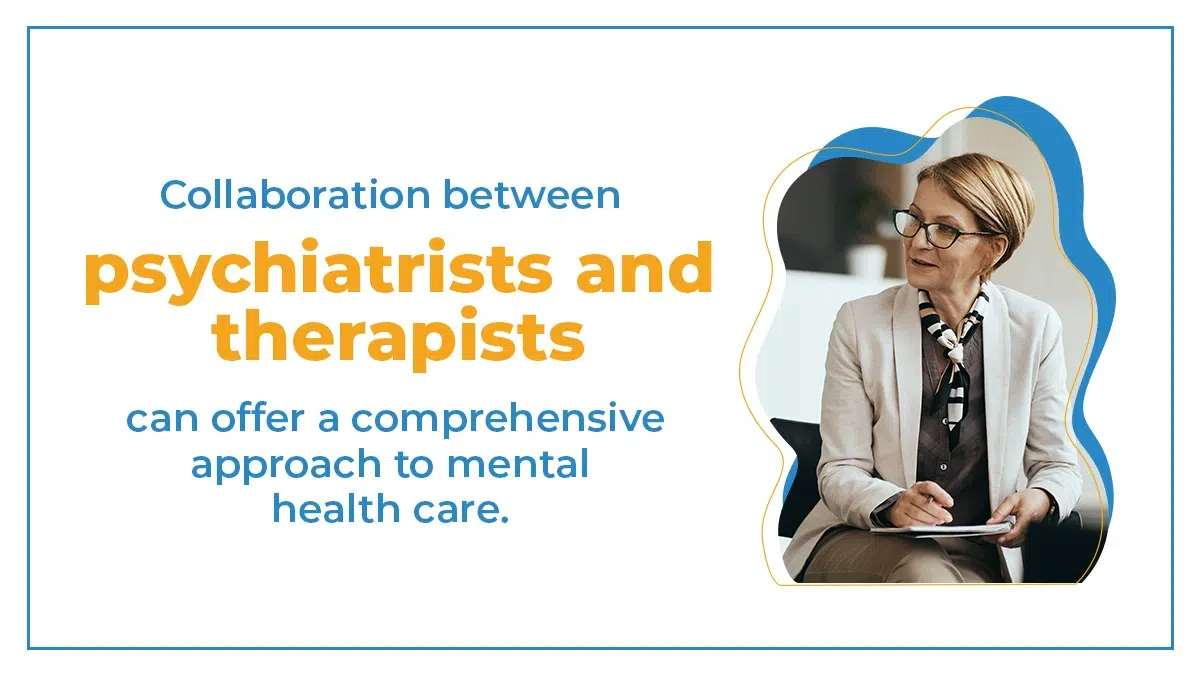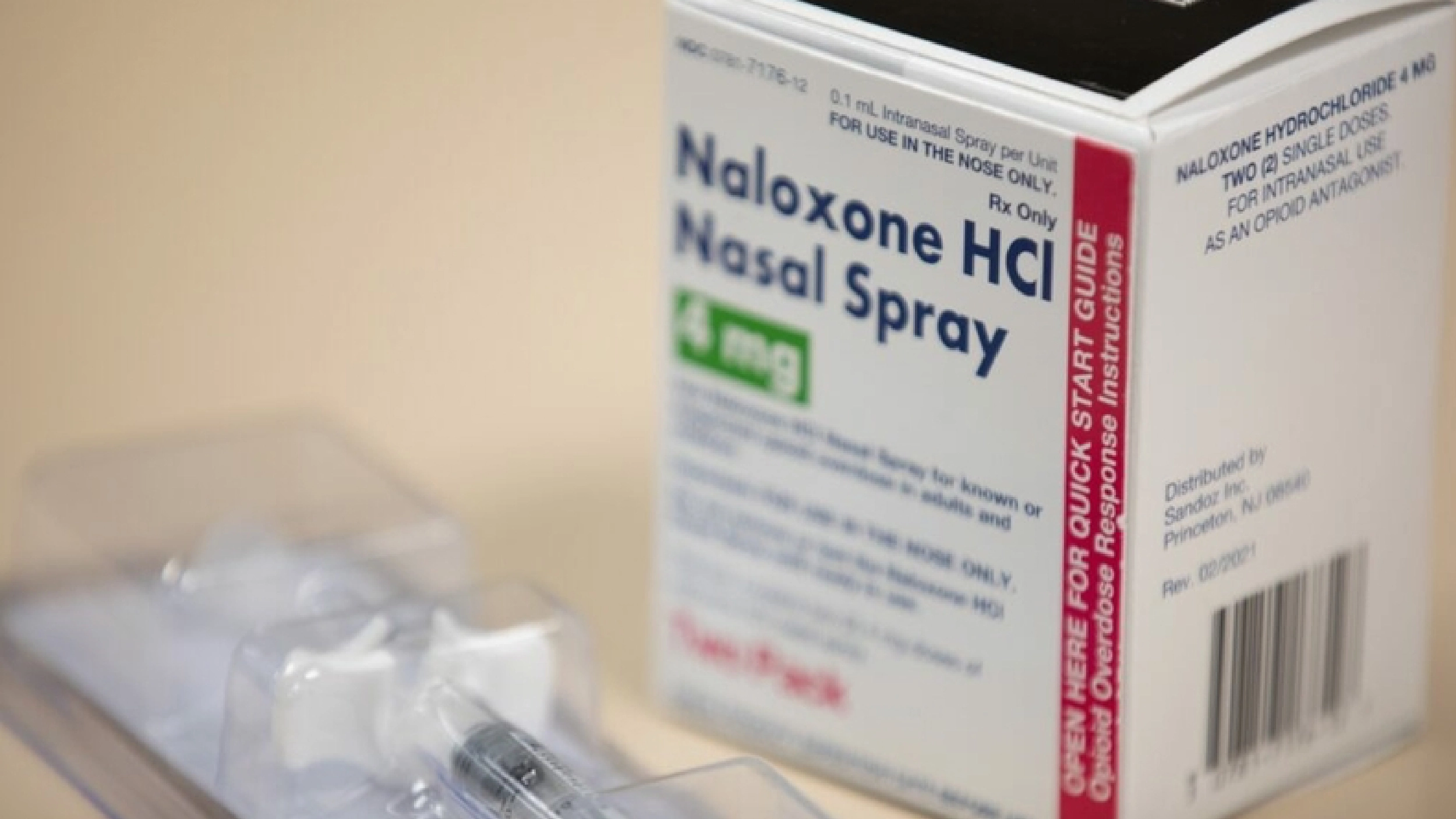
A Guide To Repairing Family Relationships
Discover expert tips for repairing family relationships and fostering healthy connections with The Recovery Team.

Psychiatrists and therapists play pivotal roles in mental health, offering invaluable support to individuals facing emotional and psychological challenges. As a medical doctor specializing in mental health, a psychiatrist brings a unique perspective, leveraging extensive knowledge of pharmacology to prescribe medications that can aid in addiction treatment.
They possess the expertise to diagnose underlying mental health conditions that may coexist with substance abuse. On the other hand, a therapist, often a licensed counselor or psychologist, provides vital psychotherapeutic interventions.
They offer a safe, non-judgmental space for exploration, employing various evidence-based techniques to address addiction’s emotional, cognitive, and behavioral aspects.
Together, these professionals contribute to the well-being of countless individuals, providing guidance and assistance in navigating the complexities of the human mind and emotions.
Contact The Recovery Team at (800) 817-1247 to embark on the recovery journey and personal growth.
According to the American Psychiatric Association, a psychiatrist specializes in diagnosing, treating, and preventing mental illnesses and emotional disorders. They use medical and psychological methods to help individuals manage their mental health.
Psychiatrists can prescribe medication, provide therapy, and support patients with various conditions, including depression, anxiety, schizophrenia, and bipolar disorder.
A trained professional offers counseling and psychotherapy to individuals, couples, or groups to address emotional, psychological, or behavioral issues. Therapists use various approaches to help clients understand and manage their feelings, thoughts, and behaviors.
Therapists can specialize in various areas, such as marriage and family therapy, cognitive-behavioral therapy, or trauma counseling, tailoring their services to their client’s specific needs and goals, developing coping strategies, and achieving guidance for the right career path.
Psychiatrists and therapists are mental health counselors but have different roles, training, and approaches to treating mental health issues.
Here are the major differences between them:
One of the fundamental distinctions between a psychiatrist and a therapist lies in their educational and training backgrounds. Psychiatrists are medical doctors who have completed a bachelor’s degree, followed by four years of medical school. After that, they undertake a residency in psychiatry, which typically lasts four years.
This extensive training equips them with a comprehensive understanding of mental health’s physical and psychological aspects. In contrast, therapists, often called licensed professional counselors or psychotherapists, typically hold a master’s or doctoral degree in psychology, counseling, social work, or a related field. Their training focuses specifically on therapeutic techniques and psychological theories.
Psychiatrists and therapists employ distinct therapy styles in their practice. Psychiatrists primarily employ a biomedical approach, utilizing medication to treat mental disorders. They can diagnose mental illnesses through medical evaluations and prescribe medication to address chemical imbalances in the brain.
On the other hand, the American Psychological Association claims therapists rely on various talk therapies such as cognitive-behavioral therapy, psychoanalytic therapy, or interpersonal therapy. They focus on helping patients explore and understand their thoughts, emotions, and behaviors to facilitate positive changes.
One of the most notable distinctions between psychiatrists and therapists is the prescription rights held by psychiatrists. Due to their medical training, psychiatrists are licensed to prescribe medication. This capability allows them to integrate pharmaceutical treatments into their practice when necessary.
Therapists lacking medical training do not have prescription privileges. They rely solely on psychotherapy and counseling techniques to assist their clients in managing and resolving mental health issues.
The focus of therapies provided by psychiatrists and therapists differs significantly. Psychiatrists primarily address severe mental illnesses, such as schizophrenia, bipolar disorder, and major depression, where medication plays a crucial role in symptom management.
Their emphasis is on the biological aspects of mental health. Therapists, however, concentrate on a broader range of mental health concerns, including relationship issues, anxiety, stress, and personal growth. Their approach is rooted in exploring the psychological and emotional dimensions of mental well-being and helping individuals develop coping strategies for medical conditions.
You might need to see a psychiatrist if you are experiencing emotional, psychological, or psychiatric symptoms significantly impacting your daily life, well-being, and ability to function. Psychiatrists are medical doctors who specialize in diagnosing, treating, and managing mental health disorders.
Here are some situations in which you might consider seeking the help of a psychiatrist:
Recognizing when you might need a psychiatrist is crucial for maintaining mental health. Psychiatrists are medical doctors who specialize in diagnosing and managing various mental health conditions.
If you find yourself experiencing persistent and distressing emotional or behavioral changes, it’s a clear sign to seek their expertise. Common indicators include overwhelming sadness, anxiety, mood swings, hallucinations, or declining functioning at work or in relationships.
A counselor or social worker can evaluate comprehensively to determine if a mental disorder exists.
In severe mental health disorders, for example, schizophrenia, bipolar disorder, severe depression, attention deficit hyperactivity disorder, and alcohol addiction, a psychiatrist plays a central role in providing effective medical treatments. They develop personalized treatment plans, including psychotherapy, hospitalization, or intensive outpatient programs.
These specialists have the training and experience to manage complex and severe conditions, offering hope for recovery and improved quality of life.
Psychiatrists are also responsible for prescribing and managing medications for mental health conditions. They carefully assess your symptoms and monitor your medication response, making necessary adjustments to optimize treatment outcomes.
Medication can be critical in managing conditions like depression, anxiety, and bipolar disorder, and psychiatrists ensure you receive the right medications at the right doses to minimize side effects and enhance your well-being.
You might need a therapist for various reasons, as therapy can benefit individuals facing various emotional, psychological, and behavioral challenges.
Here are some common situations and reasons why you might consider seeking the help of a therapist:
Life can be challenging, and at times, it can feel overwhelming. When psychological distress becomes a constant companion, it may be a sign that you need to seek help from a therapist. Psychological distress can manifest in various forms, such as persistent anxiety, depression, or unmanageable stress.
These feelings can interfere with human behavior in your daily life, making functioning and maintaining healthy relationships difficult. A therapist can provide the guidance and strategies to address these issues and regain emotional stability.
Therapists aren’t just for crisis moments; they can also offer valuable emotional support and skills development. Whether you’re dealing with relationship difficulties, grief, or low self-esteem, a therapist can provide a safe space to explore your emotions and develop coping mechanisms.
You can learn effective communication, stress management, and problem-solving skills that enhance your emotional well-being through therapy.
Therapy isn’t solely for addressing immediate concerns; it can also be a tool for long-term personal growth. Many people turn to therapists to explore their personal goals, values, and aspirations. Cognitive behavioral therapy can help you better understand yourself, improve self-awareness, and foster personal development.
It’s a journey of self-discovery that can lead to lasting positive changes in your life.
Seeking help for a substance use disorder is crucial to reclaiming one’s life from addiction. Whether you start with a conversation with your primary care physician for a holistic assessment, consult an addiction specialist for medication-assisted treatment, or connect with a therapist to address the psychological aspects, a range of professionals and resources are available to support your journey to recovery.
Support groups and peer recovery coaches can provide a sense of community and understanding, while rehabilitation centers offer structured, immersive programs for those with more severe dependencies. Family therapy can help mend strained relationships; online resources provide additional guidance and information.

Discover expert tips for repairing family relationships and fostering healthy connections with The Recovery Team.

Discover practical tips on how to set boundaries with people in this expert guide from The Recovery Team.

Naloxone saves lives. The Recovery Team shares how to reverse an opioid overdose with this drug.
If you’re experiencing mental or emotional issues, start with a therapist. They provide talk therapy and can refer you to a psychologist or psychiatrist. Psychologists offer in-depth counseling, while psychiatrists can prescribe medication in addition to behavioral therapy.
Choose based on your specific needs and consult a healthcare professional for guidance.
A therapist is a broad term for mental health professionals who provide talk therapy. They may have various degrees and specialties. A clinical psychologist holds a doctoral degree in psychology and can diagnose, treat, and conduct psychological assessments.
Psychologists often provide more specialized and in-depth therapy compared to some therapists.
Consider seeing a psychiatrist when you suspect a mental health issue requiring medication, like severe depression or bipolar disorder. Psychiatrists are doctors with medical degrees who can diagnose, prescribe medication, and offer therapy, making them suitable for cases where a combination of medication and therapy is necessary for effective treatment.
We’re your trusted partners in recovery, offering specialized dual diagnosis program services designed to help you regain control and find your way back to a brighter future.
Our Cognitive Behavioral Therapy (CBT) empowers you to reshape negative thought patterns that fuel addiction, EMDR aids in processing trauma, and DBT equips you with vital emotional regulation skills to reclaim control over your life.
Don’t wait any longer to heal and thrive. Contact us at (800) 817-1247 and let our experienced team help you toward a healthier and happier tomorrow.